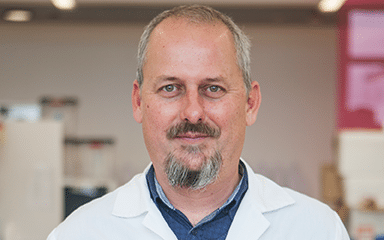Neurogenetic disease is a broad term that encompasses many diseases or conditions that impair the functioning of the nervous system and muscles. Symptoms may include muscular weakness, rigidity, loss of muscular control, myoclonus (twitching, spasming), and myalgia (muscle pain).
Neurogenetic disease can be caused by circulatory problems (stroke, etc.), immunological and autoimmune disorders, the failure of the electrical insulation surrounding nerves myelin, genetic/hereditary disorders, such as Huntington’s disease, certain tumors, the failure of the connections between the nerves and the muscle fibers, exposure to pernicious environmental chemicals, poisoning (including heavy metal poisoning), and importantly, unknown causes. The failure of the electrical insulation surrounding nerves, the myelin, is seen in certain deficiency diseases, such as the failure of the body’s system for absorbing vitamin B-12, and also the failure of the myelin is seen in multiple sclerosis and some other neurological diseases, especially in other autoimmune diseases and genetic diseases that attack the myelin.
Diseases of the motor end plate include myasthenia gravis, a form of muscle weakness due to antibodies to the acetylcholine receptor, and its related condition Lambert-Eaton myasthenic syndrome (LEMS). Tetanus and botulism are bacterial infections in which bacterial toxins cause increased or decreased muscle tone, respectively. Myopathies are all diseases primarily resulting in primary muscle weakness, rather than affecting the nerves.
Muscular dystrophies, including Duchenne’s and Becker’s, are a large group of diseases, many of them hereditary or resulting from genetic mutations, where the muscle integrity is disrupted. They lead to progressive loss of strength and decreased life span.
Neurogenetic diseases are primarily caused by an alternation or mutation in our DNA. These mutations can cause conditions that affect our nervous system. Each year, thousands of Australians are diagnosed with an inherited condition categorised as a neurogenetic disease, and these disorders are typically chronic and debilitating. In some cases, they are degenerative and deadly.
There are many different types of neurogenetic diseases with various symptoms that can appear at birth or later in life. While most neurogenetic diseases are caused by genetic issues, only some of them are inherited.
Treatments for neurogenetic diseases differ, as the symptoms and impact of each condition varies greatly. Some treatments can include:
- Genetic counselling: Genetic Services of WA (GSWA) provide a comprehensive statewide diagnostic and confidential counselling service in clinical genetics. These specially trained in counsellors can explains the results of genetic testing to families in language that is easy to understand.
- Medicines: Your child’s doctor may prescribe medicines to treat symptoms such as seizures or if treatment is guided specifically by the underlying genetic diagnosis. Otherwise, the neurogeneticist will work with your child’s doctor to treat symptoms with an understanding of how the underlying diagnosis may guide that treatment.
- Physical therapy: physical or occupational therapy can assist with symptoms such as loss of balance, weak muscle or spasticity. Therapy can also help to maintain or improve balance and flexibility and assist with some developmental delays.
The Laing Laboratory at the Perkins is one of the world’s foremost laboratories in the investigation of the genetic causes of muscle diseases in newborn children. The Laboratory was the first in the world to identify a gene for one sub-group of these disorders and later showed that many of the children affected with these diseases have mutations in actin, one of the two most important proteins in muscle contraction. These results have helped families all round the world know the cause of their children’s muscle problems. We are now researching possible treatments for diseases where we have identified the genes, while at the same time continuing work to find other genes for muscle diseases. The Laboratory’s reputation means that we receive samples for analysis from all round the world. The Laboratory is playing a leading role in a worldwide consortium of groups working towards defeating these diseases.
Recently, the Neurogenetic Disease Laboratory uncovered the cause of Myoglobinopathy, a rare muscle disease caused by a mutation in the myoglobin gene. The team is also working with the WA Department of Health’s Genetic Services WA, PathWest and the Busselton Population Medical Research Institute to screen couples planning to have a baby for genetic disease and help prevent future diagnoses.



